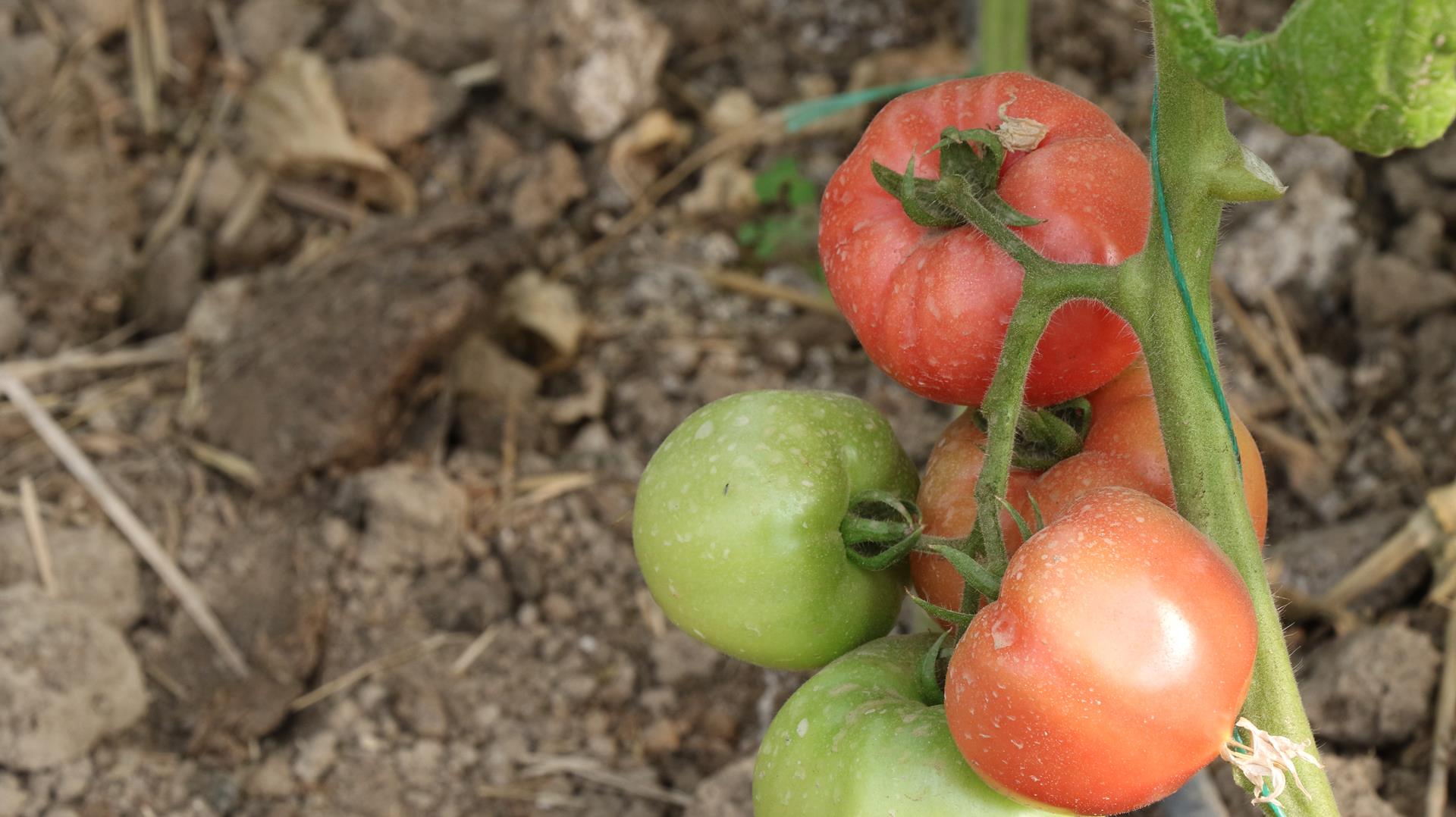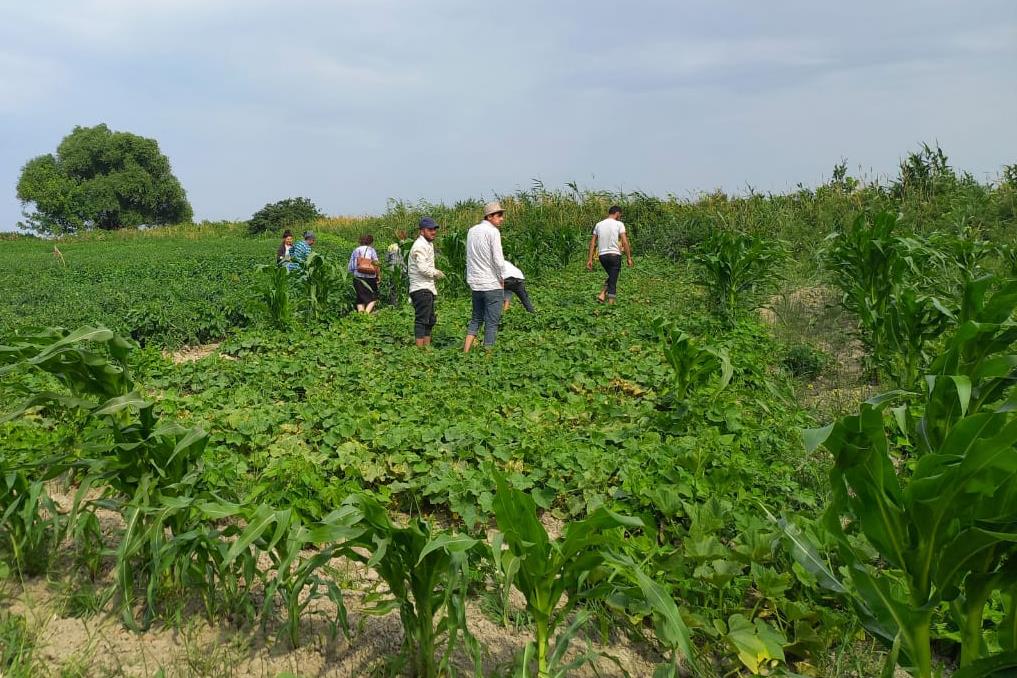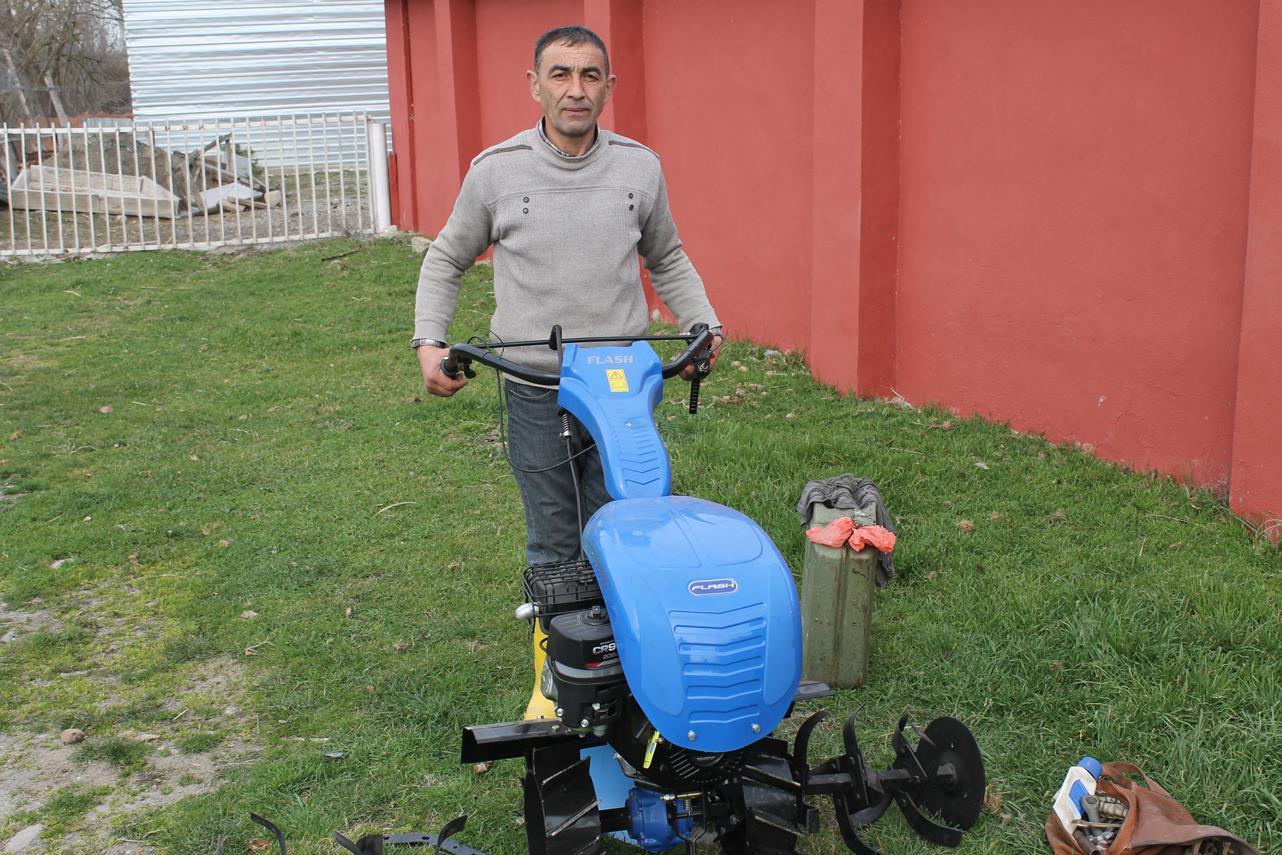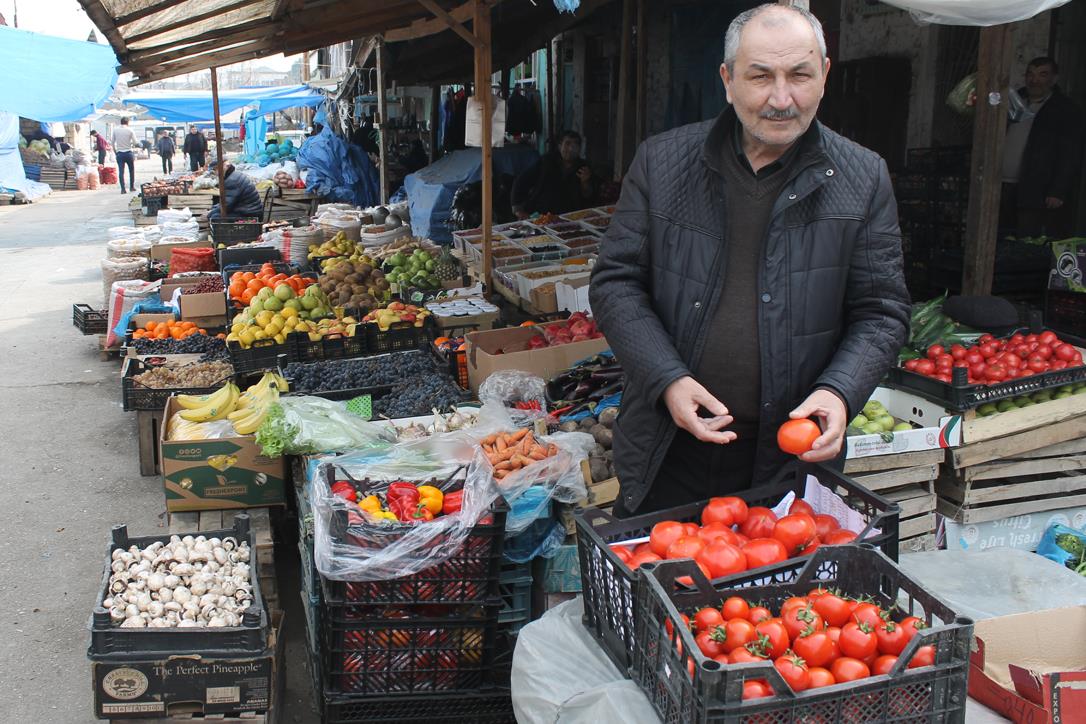
Upgrading traditional techniques boosts production of famous Azerbaijani tomatoes
Farmers have joined together to update time-honoured practices and increase yields
Tomatoes from the village of Sayad on Azerbaijan’s Caspian Sea attract buyers from far and wide. An initiative by the Food and Agriculture Organization of the United Nations and the European Union has been helping the farmers build on traditional agricultural techniques to further improve livelihoods. ©FAO
30/03/2023
Sayad village is one of the most ancient settlements nestled on the Caspian Sea coast of Azerbaijan’s Khachmaz district. It’s long been famous for its numerous varieties of succulent tomatoes thanks to the farmers’ careful cultivation of the crop and the sunny climate. But something new and transformative is happening. Farmers are reviving and building on their region’s traditional agricultural techniques, such as crop rotation, with the help of training and support from the Food and Agriculture Organization of the United Nations (FAO) and the European Union.
At the heart of this change is the formation of farmer groups based on commodities. As a tomato farmer, Hikmat Azizov is a member of the "Field Tomato" commodity-based agricultural advisory services group created in the village. He says the weekly trainings provided under the FAO Strengthening Agrarian Advisory Services (SAAS) initiative helped him with new knowledge about plant breeding, irrigation and environmentally friendly fertilizers.
Hikmat says the farming methods they have been using to date, "have served us well, but thanks to this project, I can now see a brighter future for myself and my family. We have seen improved yields, cost savings and better returns for our hard work. It is truly a blessing," Hikmat comments.
In the group, the tomato farmers learned about methods for "planting on beds," or growing vegetables, herbs and other plants in dedicated areas of soil that are separated from the rest of the garden, making it easier to access and tend to the plants and to help control weeds and soil erosion.
They also got detailed explanations of one of Azerbaijan's most common forms of traditional organic farming, which is crop rotation, or planting different crops in the same field over time, which can help prevent soil erosion and reduce pests. The combination of these methods can help preserve the country’s biodiversity while helping increase crop yields, reduce the need for chemical inputs and provide a healthier and more nutritious food source.


Among the techniques farmers have learned about in the groups is crop rotation and “planting on beds” separate from other crops for better access and weed control. ©FAO
With several tomato varieties grown in the village, including the "Aslan", "Sayad" and "Shishburun", all known for their juicy, sweet flavour and succulent texture, people from nearby and even far-off regions flock to the village to load up with the crop.
Yet farmer Vasif Kalbaliyev says that despite his hard work and dedication, he has often struggled to keep up with the latest advances and stay competitive. He was always looking for ways to increase his yield and improve the quality of his produce, but, he says, it seemed as if he was “constantly running into a brick wall”.
Expressing his gratitude, Vasif says that, with help from the FAO project, he’s been able to increase his yield and improve the quality of his tomatoes. He has even expanded his business and started selling his tomatoes to other markets. He is now also a member of the "Field Tomato" advisory group and the owner of the village’s tomato demonstration site.

Farmers say the initiative has helped them increase their yields and improve the quality, boosting their incomes and giving them access to wider markets. ©FAO
Tailored to commodities
The initiative in Sayad is one of seven different commodity-based advisory groups set up under the SAAS project. The other groups focus on sorghum, sunflowers, apples, sour cherries, plums and greenhouse tomatoes as opposed to Sayad’s open field tomatoes. Each have their own facilitators and agronomists and if the experts in the group don’t have the answers themselves, they help the farmers by contacting other specialists who can be of assistance.
“Initially, farmers were skeptical about the approach and the facilitators’ role. However, after being part of the discussions, they obtained relevant advice and witnessed some positive results. Farmers became increasingly involved and more were interested in joining the platform,” said Vugar Bashirov, FAO’s project coordinator in the country.
The project has developed a five-year strategy for strengthening agricultural advisory services in Azerbaijan, making sure the farmers have access to up-to-date best practices and guidance from a mix of public and private sector advisors, without the need for additional funding from government. The new model will be put to the test in a three-year plan for developing SAAS in pilot regions.
“With the valuable support from the European Union and all the experts we have on board, we are making important strides towards helping more and more Azeri farmers get the best out of their crops and their land and improving their livelihoods in a sustainable way going forward,” says Bariz Mehdiyev, the Assistant FAO Representative in Azerbaijan.
Related links
Learn more

